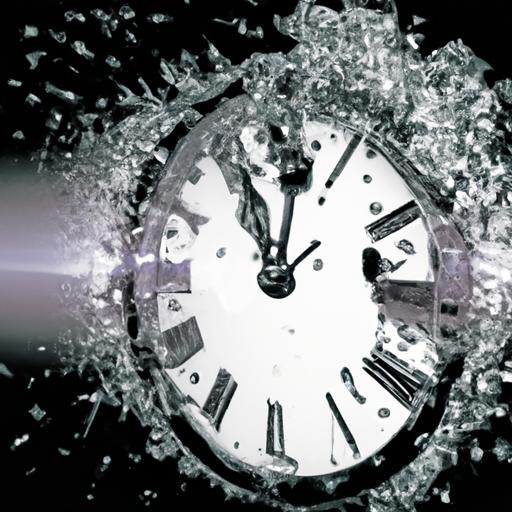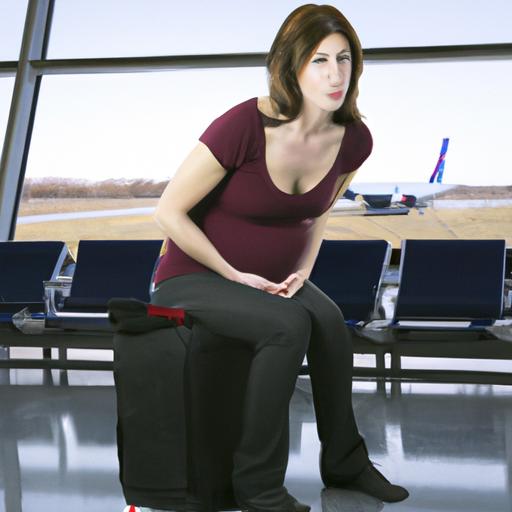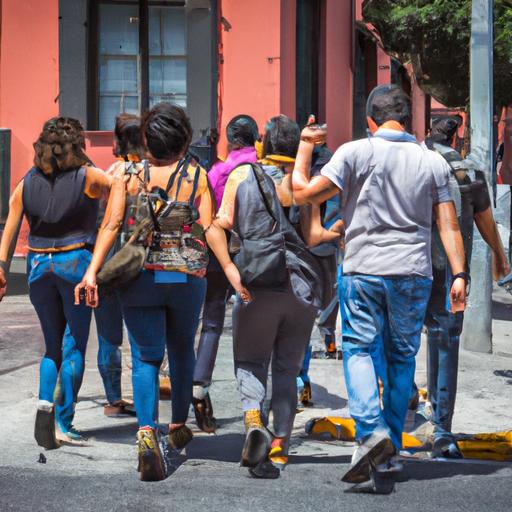Is Traveling Back in Time Possible?

Have you ever found yourself daydreaming about the possibility of traveling back in time? The idea of reliving past moments, correcting past mistakes, or simply experiencing historical events firsthand is undoubtedly intriguing. As we delve into the world of time travel, we enter a realm of endless possibilities and thought-provoking debates. So, let’s embark on this captivating journey together and explore the question: is traveling back in time possible?
The concept of traveling back in time has fascinated humanity for centuries. From ancient civilizations to modern-day thinkers, the idea of manipulating time has sparked countless discussions and ignited the imaginations of many. Films like “Back to the Future” and books like “The Time Machine” have further perpetuated this fascination, leaving us wondering if time travel could ever become a reality.
While the concept may seem far-fetched, scientists and physicists have proposed various theories that suggest the possibility of time travel. One such theory is time dilation, which states that time can pass at different rates depending on the speed at which an object is moving or the strength of the gravitational field it is in. This theory has been proven in experiments involving high-speed space travel and has led some to speculate that it could potentially be used for time travel.
Another intriguing concept is the idea of wormholes. These hypothetical tunnels in spacetime could potentially act as shortcuts, connecting different points in time and space. Though purely theoretical at this point, wormholes offer a glimmer of hope for those who yearn to journey through time.
The ongoing debates surrounding time travel, however, cannot ignore the Grandfather ParadoThis paradox raises the question: if time travel were possible, what would happen if you went back in time and killed your own grandfather before he had any children? This paradox highlights the potential conflicts and contradictions that arise when we consider altering the past.
As we delve deeper into the theories, possibilities, and paradoxes of time travel, it becomes evident that this topic is not merely confined to the realms of science fiction. Scientists are actively conducting research and experiments to unlock the secrets of time manipulation. In the next sections, we will explore the portrayal of time travel in popular culture, recent scientific advancements, and the current limitations and challenges faced by scientists in their pursuit of time travel.
So, fasten your seatbelts, dear reader, as we embark on this enthralling exploration of time travel. Together, we will unravel the mysteries, challenge the boundaries of our understanding, and determine if traveling back in time is indeed possible.
Theories and Possibilities of Time Travel
Theories Proposed by Scientists and Physicists
When it comes to the concept of time travel, scientists and physicists have put forth intriguing theories that push the boundaries of our understanding. These theories offer glimpses into the possibilities of manipulating time and exploring the realms of the past.
One prominent theory is the concept of time dilation. Proposed by Albert Einstein’s theory of relativity, time dilation suggests that time can pass at varying rates depending on the speed at which an object moves or the strength of the gravitational field it experiences. This phenomenon has been observed and measured in experiments involving high-speed space travel and satellites orbiting Earth. The implications of time dilation open up the tantalizing prospect of traveling to the future by experiencing time at a slower rate than others.
Time Dilation and Its Relation to Time Travel
Time dilation plays a crucial role in the discussion of time travel. As objects approach the speed of light or experience intense gravitational forces, time appears to slow down for them relative to an outside observer. This phenomenon has been proven through experiments and observations, indicating that time is not fixed but rather malleable.
The concept of time dilation raises the possibility of traveling to the future. Imagine a scenario where an astronaut embarks on a journey through space, traveling at near-light speed for a significant duration. Upon their return, they would find that while they may have aged only a few years, centuries may have passed on Earth. This fascinating theory suggests that time travel to the future is indeed possible, albeit in a different manner than we often envision.
Wormholes: Gateways to the Past?
Another captivating theory that captures the imagination is the existence of wormholes. These hypothetical tunnels in spacetime serve as shortcuts, connecting distant points in the universe. It is theorized that if wormholes exist, they could potentially act as gateways to the past or the future, allowing for the traversal of time.
While the concept of wormholes remains purely theoretical at this point, the mathematics of general relativity supports their existence. Scientists continue to explore the intricacies of wormholes, seeking to understand their nature and potential applications. The exploration of wormholes presents an exciting avenue for the possibility of time travel, albeit one that remains shrouded in mystery and further scientific investigation.
As we delve deeper into the theories and possibilities of time travel, we begin to glimpse the potential pathways that could lead us to the realms of the past and future. The concepts of time dilation and wormholes offer intriguing avenues for exploration, pushing the boundaries of our understanding and fueling our fascination with the possibility of traveling through time. In the following sections, we will delve into the challenges presented by the Grandfather Paradox and the influence of time travel in fiction and popular culture.
The Grandfather Paradox
Defining the Grandfather Paradox
One of the most intriguing aspects of time travel is the Grandfather ParadoThis paradox poses a fascinating question: What would happen if you traveled back in time and killed your own grandfather before he had any children? The paradox gets its name from the hypothetical scenario where an individual prevents their own birth by altering events in the past.
Arguments for and against the Grandfather Paradox
The existence of the Grandfather Paradox has sparked heated debates among scientists, philosophers, and enthusiasts alike. Some argue that if time travel were possible and the paradox were to occur, it would create a logical contradiction. After all, if you prevented your own birth, how could you have traveled back in time in the first place?
On the other hand, proponents of time travel propose alternative theories to debunk the Grandfather ParadoOne argument suggests that the universe would instead find a way to prevent such alterations, ensuring consistency and avoiding paradoxical situations. This idea aligns with the concept of a “fixed timeline” or the idea that events in the past cannot be changed, regardless of attempts to do so.
Theories and proposed solutions
To reconcile the Grandfather Paradox, several theories and proposed solutions have been put forth. One theory suggests the existence of multiple timelines or parallel universes, where any changes made in the past would create a new timeline separate from the original one. This theory allows for the possibility of altering events without causing a parado
Another proposed solution involves the concept of “self-consistency.” According to this theory, any actions taken in the past to alter events would ultimately be futile, as the timeline would self-adjust to ensure that events unfolded in a way that aligns with history as we know it. In essence, this theory suggests that time travel would be limited to observing and experiencing the past, without the ability to make significant changes.
While these theories and proposed solutions offer potential explanations, the Grandfather Paradox remains a captivating and unresolved aspect of time travel. As we continue our exploration, we will further delve into the portrayal of time travel in fiction and popular culture, shedding light on how these narratives have shaped our perception of traveling through time.
Time Travel in Fiction and Popular Culture
The Portrayal of Time Travel
Time travel has long captured the imaginations of authors, filmmakers, and storytellers. It has served as a central theme in numerous works of literature, movies, and TV shows, allowing us to explore the possibilities and consequences of manipulating time. From classic novels to blockbuster films, the portrayal of time travel has taken various forms, each offering unique perspectives on this enigmatic concept.
In literature, renowned authors like H.G. Wells with his groundbreaking novel “The Time Machine” and Ray Bradbury with “A Sound of Thunder” have delved into the intricacies of time travel. These literary works have not only entertained readers but also sparked thought-provoking discussions on the nature of time and its potential manipulation.
Moving on to the silver screen, we encounter iconic movies such as “Back to the Future” and “The Terminator” series. These films have not only entertained audiences but have also shaped popular culture’s perception of time travel. They have introduced us to the idea of altering the past and the ripple effects it can have on the future, raising questions about fate, causality, and the power of our choices.
Famous Examples and Impact
One cannot discuss time travel in popular culture without mentioning the beloved TV show “Doctor Who.” This long-running series has captivated audiences for decades, following the adventures of a time-traveling alien known as the Doctor. Through its intriguing storylines and imaginative settings, “Doctor Who” has not only entertained fans but has also instilled a sense of wonder and fascination with the concept of time travel.
Another notable example is Christopher Nolan’s mind-bending film “Inception.” While not explicitly about time travel, it explores the manipulation of time within the realm of dreams. By blurring the lines between reality and dreams, “Inception” challenges our perception of time and leaves us questioning the nature of our own experiences.
Influence on Perception
The portrayal of time travel in fiction and popular culture has undeniably influenced our perception of this concept. It has shaped our expectations, fueled our curiosity, and expanded our imagination. However, it is essential to distinguish between the fantastical elements depicted in these works and the scientific realities that researchers are exploring.
While popular culture has played a significant role in popularizing time travel, it is crucial to approach the topic with a critical and discerning mindset. The fictional portrayals often simplify and dramatize the complexities and limitations of time travel for the sake of storytelling. As we delve into the scientific advancements and ongoing research in the field, we must separate fact from fiction, understanding that the reality of time travel may differ greatly from its fictional counterparts.
In the next sections, we will explore the current scientific advancements and experiments conducted in the pursuit of time travel, shedding light on the progress made and the challenges that lie ahead. So, let us continue our journey through the mysteries of time, where reality and imagination intertwine.
Current Scientific Advancements and Experiments
Recent Scientific Advancements
In recent years, significant strides have been made in the realm of time travel research. Scientists and researchers around the world are diligently working to unravel the mysteries of time manipulation. One notable advancement is the exploration of quantum mechanics and its potential implications for time travel. Quantum entanglement, a phenomenon where particles become connected and can influence each other’s states instantaneously regardless of distance, has sparked intriguing possibilities for manipulating time.
Additionally, advancements in the field of black hole research have shed light on the potential role these cosmic phenomena could play in time travel. The study of black holes has led to the development of theories such as the “Black Hole Time Machine,” which proposes that certain types of black holes could act as portals to different points in time.
Ongoing Experiments and Studies
Scientists are actively conducting experiments and studies to test the feasibility of time travel. One such experiment involves the use of atomic clocks. By placing one atomic clock on Earth’s surface and another on a high-speed aircraft, researchers aim to observe the effects of time dilation caused by the difference in gravitational forces and velocity. These experiments could potentially provide insights into manipulating time on a small scale.
Furthermore, the Large Hadron Collider (LHC), the world’s most powerful particle accelerator, is being used to explore the fundamental laws of the universe. While not explicitly focused on time travel, the discoveries made at the LHC could contribute to our understanding of the underlying physics that govern the possibility of time manipulation.
Limitations and Challenges
Despite the exciting advancements and ongoing experiments, scientists face numerous limitations and challenges in achieving time travel. One significant challenge is the immense amount of energy required to manipulate time on a noticeable scale. The energy requirements are currently beyond our technological capabilities, making large-scale time travel a distant possibility.
Moreover, the existence of the Grandfather Paradox and other potential paradoxes poses significant philosophical and logical challenges. The alteration of past events could lead to contradictions and inconsistencies, raising questions about the feasibility and ethical implications of time travel.
Furthermore, the concept of causality, the idea that an event is caused by preceding events, adds another layer of complexity to time travel. Altering the past could disrupt the natural flow of cause and effect, potentially leading to unpredictable consequences.
While time travel remains a tantalizing prospect, scientists continue to push the boundaries of knowledge and explore the possibilities. Through ongoing research, experimentation, and the collective efforts of the scientific community, we inch closer to unraveling the mysteries of time travel.
In the next section, we will delve into the fascinating world of time travel in fiction and popular culture, exploring how these narratives have influenced our perceptions and shaped our understanding of this captivating phenomenon.
Conclusion
In conclusion, the question of whether traveling back in time is possible continues to captivate our collective imagination. While the concept of time travel may seem like pure science fiction, it is not without its theoretical possibilities. Scientists and physicists have proposed theories such as time dilation and the existence of wormholes that offer a glimmer of hope for those who dream of journeying through time.
However, the Grandfather Paradox serves as a reminder of the potential conflicts and contradictions that arise when we consider altering the past. This paradox challenges our understanding of causality and raises important questions about the consequences of tampering with the timeline.
Despite ongoing debates and theoretical possibilities, it is important to acknowledge the current limitations and challenges faced by scientists in achieving time travel. While advancements in scientific research continue to push the boundaries of our understanding, we are still far from realizing the dream of traveling back in time.
Nevertheless, the fascination with time travel persists, as evidenced by its portrayal in popular culture. Books, movies, and TV shows have fueled our fascination and shaped our perception of time travel, leaving an indelible mark on our collective consciousness.
As we conclude this exploration of time travel, we are left with a sense of wonder and curiosity. The possibility of traveling back in time remains elusive, yet the pursuit of knowledge and exploration knows no bounds. So, let us continue to delve into the mysteries of time, pushing the boundaries of our understanding, and who knows, perhaps one day we will unlock the secrets of time travel.
Until then, we can continue to indulge in our imagination, ponder the possibilities, and appreciate the wonders of the present moment. After all, time, in its ever-flowing nature, offers us countless opportunities to create meaningful experiences and shape our own destinies.
So, my fellow time enthusiasts, let us embrace the mysteries of time and savor the journey, for it is in the present that we truly find our place in the vast tapestry of existence.
Conclusion: So above is the Is Traveling Back in Time Possible? article. Hopefully with this article you can help you in life, always follow and read our good articles on the website: travel.lakeviewinnmn.com



